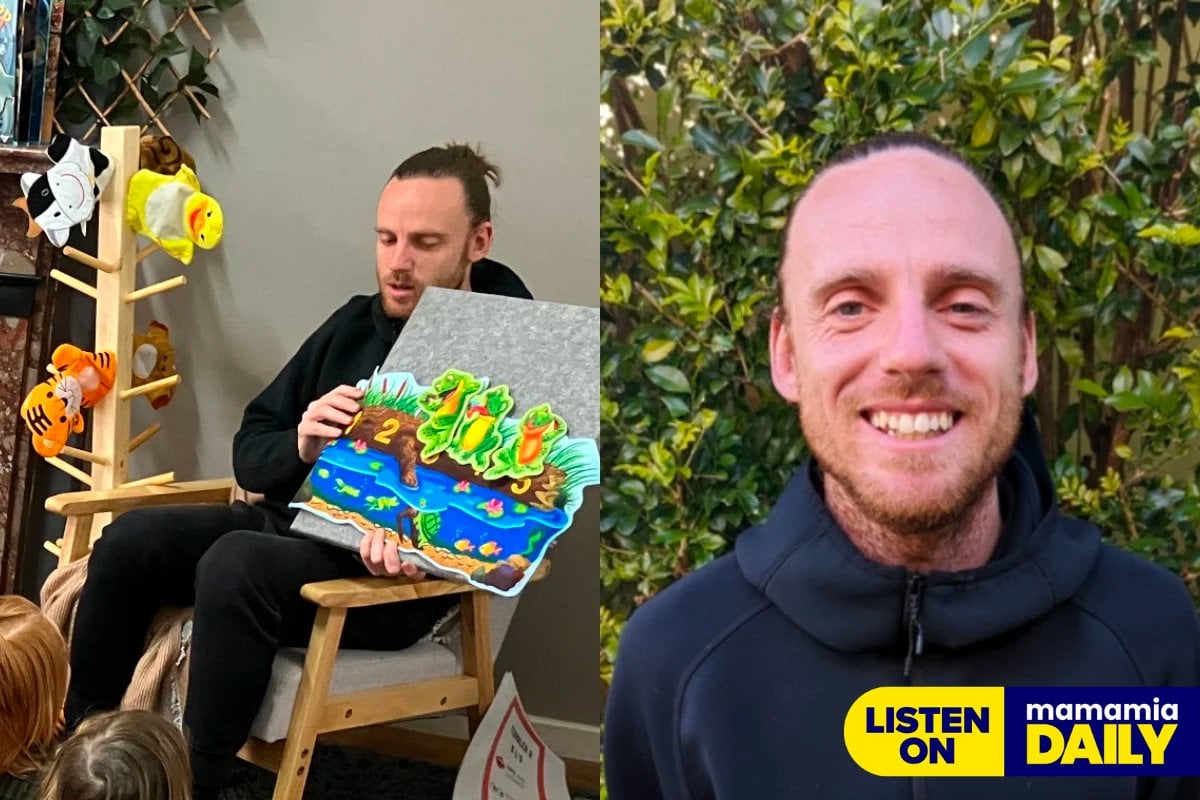
Listen to this story being read by Thom Lion, here.
From an early age, I had a fascination for children’s worlds. Christmas Day in my teen years was spent on the floor with my younger cousins, avoiding the overwhelming insecurity I felt around adults.
My interest in children appeared mutual; I recall entering a family friend's home and being hugged by a child I had never met to the shock of the young boy's parents.
Even now, I often pull faces at children in supermarket aisles, amused by their constant eagerness for play. Looking back, it was probably fate that I would start a career in early education.
Watch: We called our favourite teachers from school to say 'thank you'. Post continues after video.
I began working in early childhood education in 2012.
I entered the profession as a painfully shy 18-year-old male in a large, female-dominated work environment.
“Female dominated” might be an understatement: there were over 20 female educators... and me. Only now do I realise how daunting that was, however, I received nothing but support and encouragement from every colleague and parent.


Top Comments